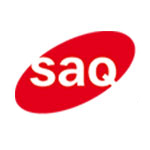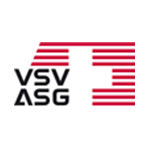- Examples of internal frauds in Wealth and Asset Management: who are the perpetrators of internal fraud?
- What tools are generally deployed to detect non-compliance, unethical behavior and fraud?
Matthias Kiener, Partner, Forensics, Mazars, Zurich and Geneva
Florent Mourier, Executive Director, Forensics, Mazars, Zurich and Geneva
Olivier Maes, Executive Director, Audit & Assurance, GRC, Regulatory Compliance, Mazars, Zurich and Geneva
Internal fraud in Wealth Management / Private Banking is one of the most substantial threats to the viability and sustainability of any organization. Damage caused by fraud can go far beyond purely financial losses or regulatory enforcement. It can result in significant adverse business. This may ultimately impact undermining stakeholder relationships, reputation, and brands. In the banking industry in Switzerland, the types of fraud reported include asset misappropriation (51%) and cybercrime (44%). Considering different root causes and perpetrators (e.g. lone wolf, systems administrator or golden key holders,…), to these cases, internal fraud risk management is and remains a critical aspect for organizations to safeguard against financial crime and protect their stakeholders. The conference will be illustrated with numerous internal fraud examples primarily from the wealth management / private banking industry. We will also discuss who are the typical internal fraudsters and the typical victims to internal fraud. Also, some fraud detection tools will be explained.
What kind of fraud do we observe in banking and in wealth management in Switzerland?
- Examples of frauds in Wealth and Asset Management, Retail Banking, Investment Bank.
- What are the characteristics of fraud cases? Who are generally the perpetrators? Who are the victims? What were the opportunities that have led to fraud cases? What is the difference between “Fraud” and “Non- compliance”?
- Fraud deterrence versus fraud investigations?
- What is the view of FINMA regarding fraud cases?
Fraud Risk Management
- Considering the Swiss regulatory environment, do financial intermediaries need to have an antifraud framework?
- What would be the typical governance in the banking industry?
- How to develop a holistic fraud risk management framework in an organization.
- What are the cornerstones of a fraud risk management framework? How does a fraud risk management framework look like? What are the typical elements of a fraud risk management framework?
Fraud Reporting systems and whistleblowing
- What fraud reporting system should exist within a financial intermediary?
- Who should have access to the information?
- What is the governance once a fraud is reported through the whistleblowing channel? What should be secured?
How are frauds detected?
- What tools are generally deployed to detect non-compliance, unethical behavior and fraud?
- What tools are used by private investigators to detect fraud during an internal investigation?
- What is the role of Forensic Data & Analytics?
- The Do’s and the Don’ts along a fraud investigation
Fraud Investigation and corrective action
- What is generally the approach of a fraud investigation?
- What are the key pieces and necessary governance of a fraud investigation?
SPEAKERS
Matthias Kiener
Partner, Forensics, Mazars, Zurich and Geneva
Florent Mourier
Executive Director, Forensics, Mazars, Zurich and Geneva
Olivier Maes
Executive Director, Audit & Assurance, GRC, Regulatory Compliance, Mazars, Zurich and Geneva
Combating Internal Fraud in Swiss Wealth Management : asset misappropriation and cybercrime
I wish to see this past conference on zoom
Contact by the phone
ACADEMY & FINANCE SA
Rue Neuve-du-Molard 3
1204 Genève
Switzerland
T + 41 (0)22 849 01 11
E info@academyfinance.ch


